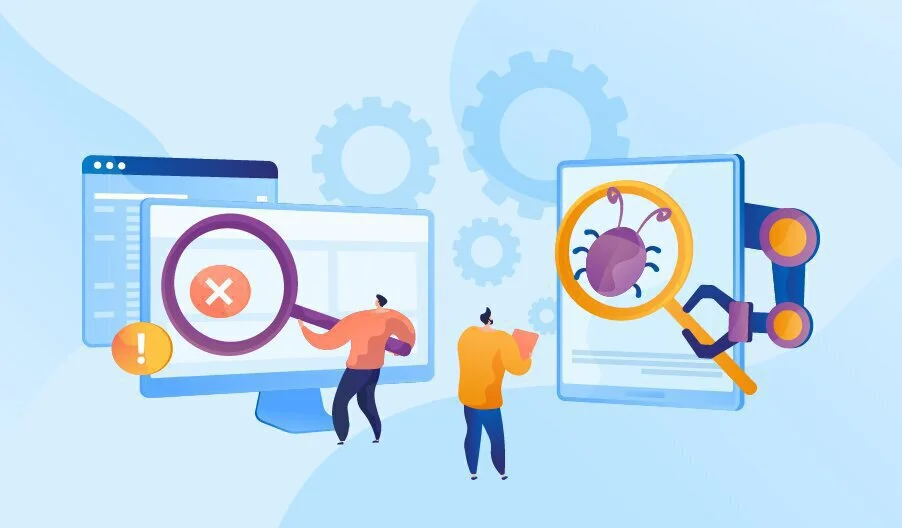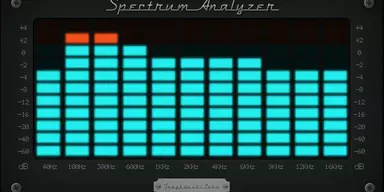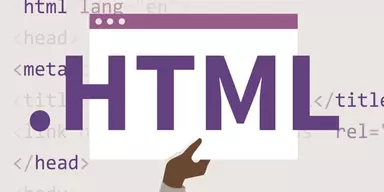The software can be tested using two ways, manual testing, and automated testing. Manual testing requires time and exertion to guarantee that generated code does everything it was designed to do. Furthermore, manual analyzers need to make a record of their discoveries, including checking log records, services, and the database for errors.
In manual testing, testers realize that this procedure can be increasingly tedious and monotonous. Testers utilize automated testing tools to counter these issues. These platforms automate all the tasks a tester has to perform manually, thus saving time and money subsequently.
What is Automated Testing Software?
As the name implies an automated testing software automates the testing process of a software. These testing software can likewise enter test cases into the software under review, examine the expected and generated outcomes, and produce test reports on each test cycle.
An automated testing software enables testers to record a test suite and re-play it as required. Once the test case becomes automated, no physical intervention is needed. But automated testing software requires additional resources to implement.
Best Automated Testing Software
Below mentioned lists include top-notch automated testing tools for all types of frameworks.
1. TestProject
TestProject is a free cloud-based, group-oriented test automation solution for web, mobile, and API testing that is bolstered by the number 1 test automation network. It gives useful assets to automate Web, Android, and iOS applications on every single working framework, in one convenient bundle.
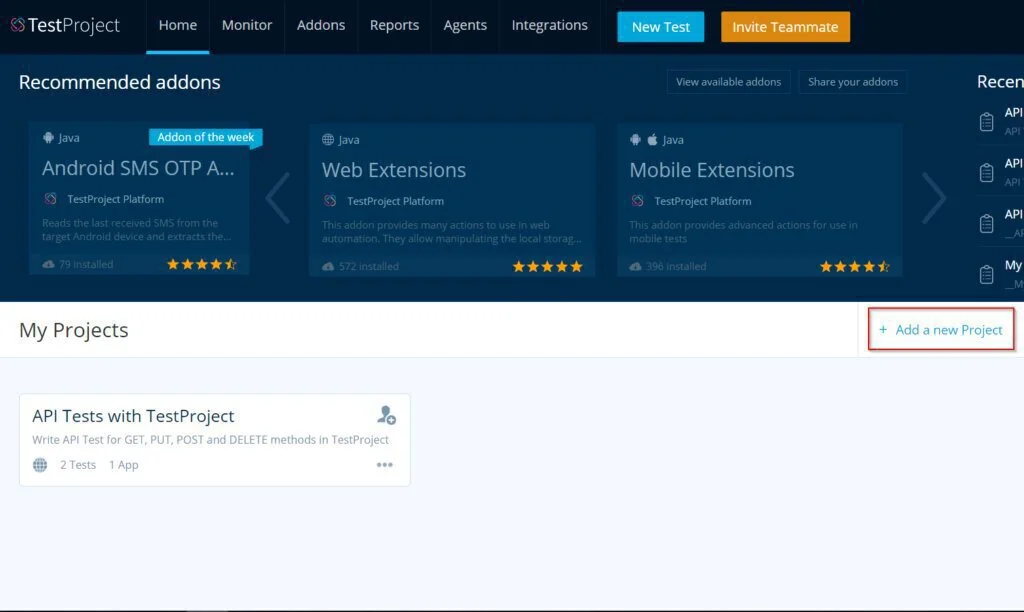
It has record and playback options alongside a designer SDK and the facility to utilize and make addons. TestProject is based on open-source automation platforms like Selenium and Appium, yet it expels the complex nature of installing drivers for every different application to test. TestProject has a free plan that is robust and can start working instantaneously.
Features
- Collaborative Testing Repository
- DevOps Tool Integrations
Pros
- Easy Deployment and Execution
- Shared Addons
Cons
- A bit slow sometimes
Pricing
- Free
Visit: TestProject
2. Ranorex
Ranorex Studio is a GUI test automation solution by Ranorex GmbH. The system provides options for the testing of desktop, mobile, and web applications. It is a decent answer for executing automated testing with consistent conveyance and within DevOps framework, which requires constant testing and quick input to testing results.
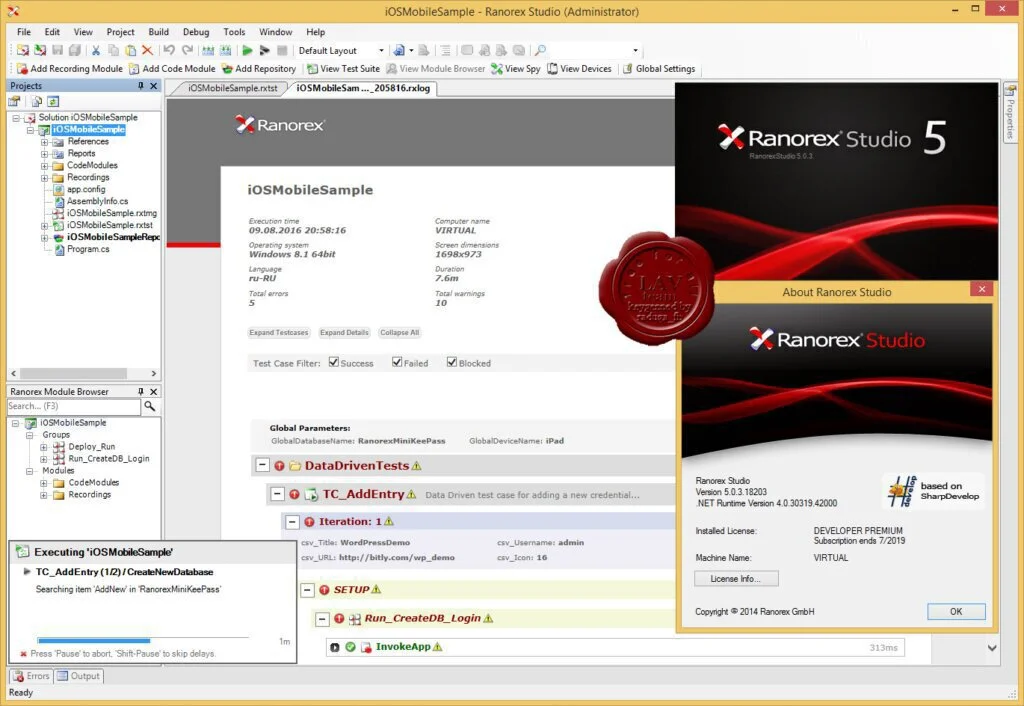
Ranorex offers an expansive scope of testing instruments to coordinate with the most famous continuous integration and test management tools. With options to automate tests on a Windows work environment, and afterward executing them locally or remotely, on actual iOS or Android devices.
Features
- Simple integrations
- Efficient code modules
Pros
- Cross-device testing
- All-in-one solution
Cons
- Small Community
Pricing
- Node-Locked Studio: €2,890/license
- Floating Studio: €4,790/license
- Enterprise Bundle: €6,190/license
Visit: Ranorex
3. TestCraft
TestCraft is an automated testing solution for regression and continuous testing and analyzing web applications. Their progressive artificial intelligence innovation disposes of upkeep time and costs as it naturally manages the altercations in the applications.
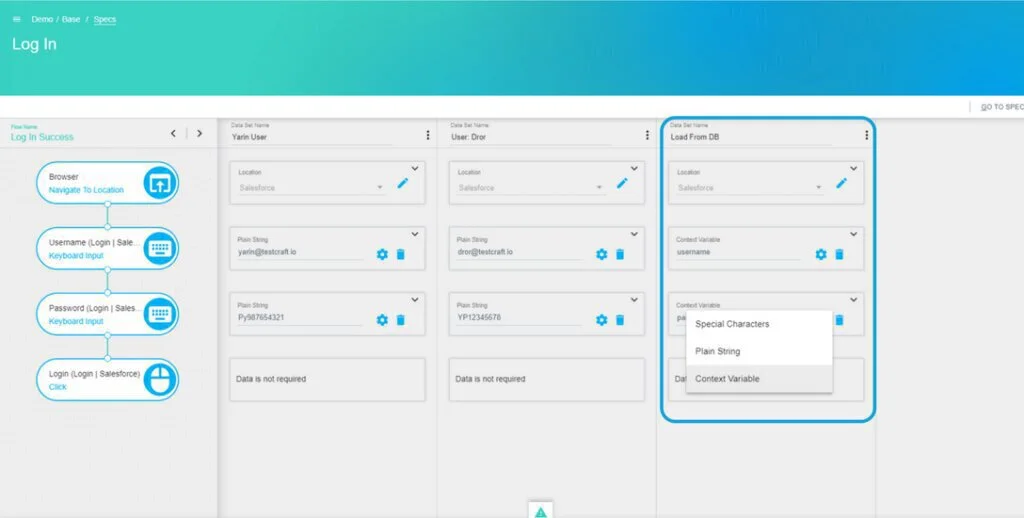
It enables quicker test creation and execution by creating a powerful test model that can be adequately refreshed to reflect changes in the application. Utilizing services of TestCraft analyzers can generate automated, visual, tests utilizing a simplified interface, and execute them on various frameworks, at the same time. Without the need for any coding skills.
Features
- AI auto fix
- DevOps friendly
Pros
- Multi-platform support
- Low maintenance
Cons
- Unresponsive interface
Pricing
- On Quote
Visit: TestCraft
4. Subject7
Subject7 is a comprehensive end-to-end automated testing solution with vigorous features without the requirement for custom modifications. Subject7 is an adaptable, web-based automated testing software intended to create, handle, and run test cases for programs.
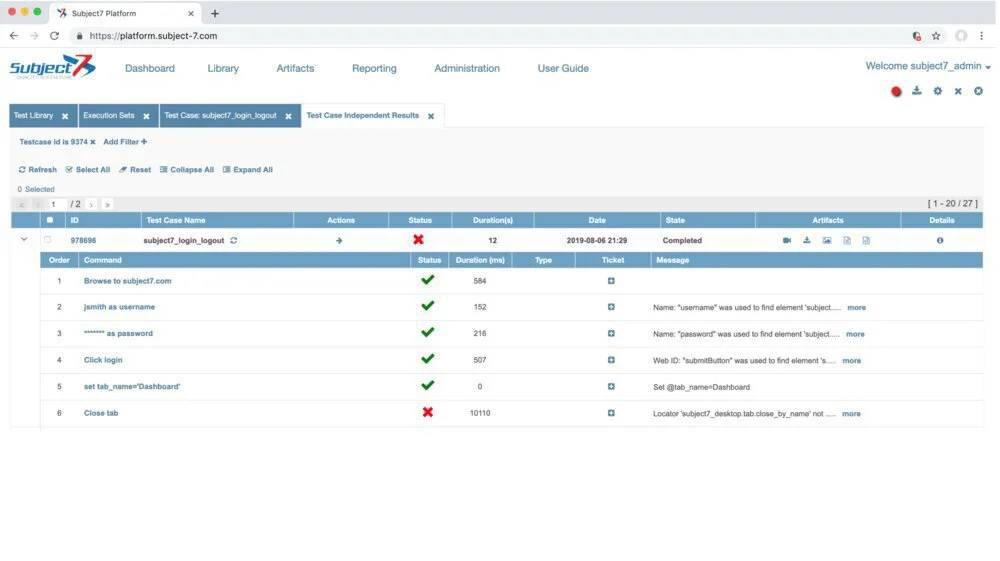
Subject7 utilizes test composing through a wizard-driven online service and applies useful, regression, and acceptance testing for program analysis. No framework, customization, or scripting language is required to utilize it and available as a web app, desktop app, or a native mobile app.
Features
- Security and Load Testing
- Parallel Execution
Pros
- Native mobile app
- End-to-End Testing
Cons
- Not user friendly
Pricing
- On Quote
Visit: Subject7
5. TestingWhiz
TestingWhiz is codeless automated testing software, which gives automated solutions to enterprises and IT organizations for their Web, Mobile, Database, and API testing. TestingWhiz automates, Executes, and handles test cases quickly and productively. It likewise enables clients to examine the basic working of their web applications and provide powerful web interfaces.
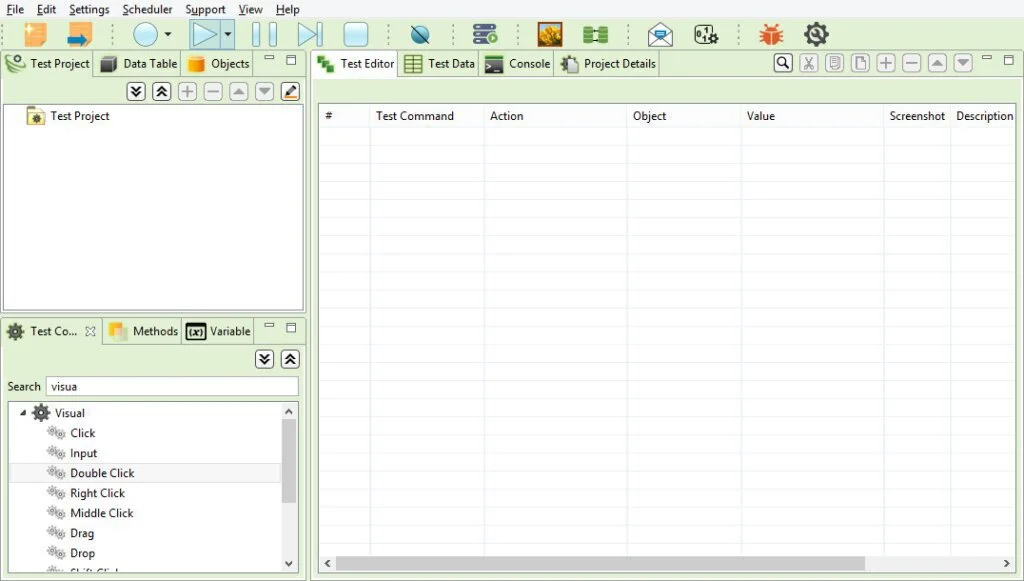
It enables users to make robust automated scripts easily. The testing commands are profoundly usable, empowering clients with no coding aptitudes to enhance testing and lift proficiency on automated ventures. It provides cross-program testing permitting the client to execute tests on Firefox, Chrome, Safari, Edge, or mobile browsers.
Features
- OCR Capabilities
- Reusable methods
Pros
- Multiple browsers support
- Robust reporting and logs
Cons
- No desktop automation
Pricing
- On Quote
Visit: TestingWhiz
6. QMetry Automation Studio
QMetry Automation Studio (QAS) offers adaptable test automating that empowers convenient change from manual to automated testing. It is equipped with multi-stage automated testing across the web, APIs, and cell phones. It additionally utilizes open-source test automation systems, for example, Selenium and Appium to bring structural productivity, and reusability.
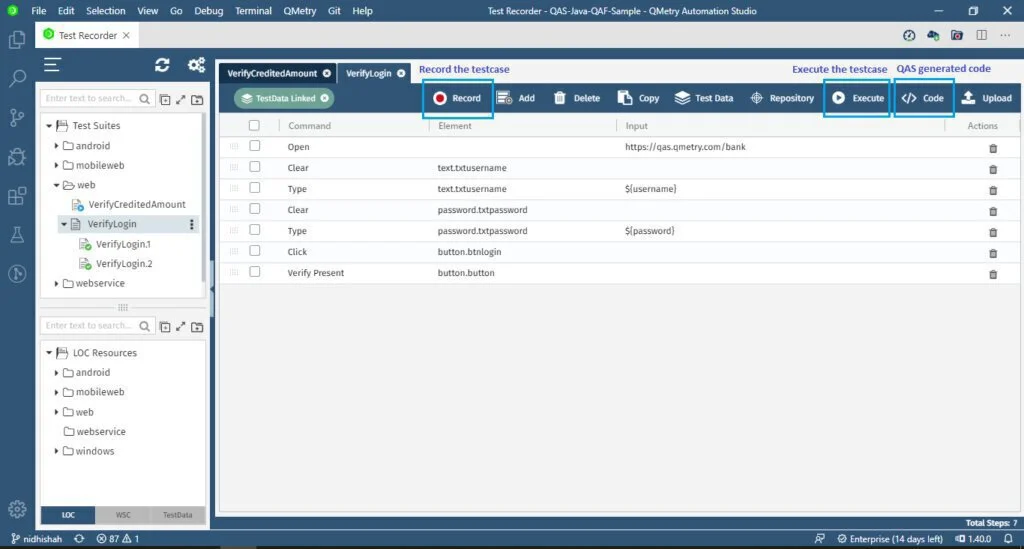
It is supported by various web browsers for test execution, numerous systems, ALM Incorporations, and modules to adapt computerized testing. Advantage from its harmonious combination with CI and CD tools like Jenkins and Bamboo provides the ability to run test cases in self-healing mode.
Features
- Test Authoring
- Streamline object spying
Pros
- Dashboards and reports
- Automatic test component generation
Cons
- Resource heavy application
Pricing
- On Quote
Visit: QMetry Automation
7. Appium
Appium is an open-source test automation system to use with local, hybrid smartphone web applications. It drives iOS, Android, and Windows applications utilizing the WebDriver protocol. This driver depends on a venture from Microsoft called WinAppDriver, which is an Appium-compatible WebDriver server for Windows Desktop applications
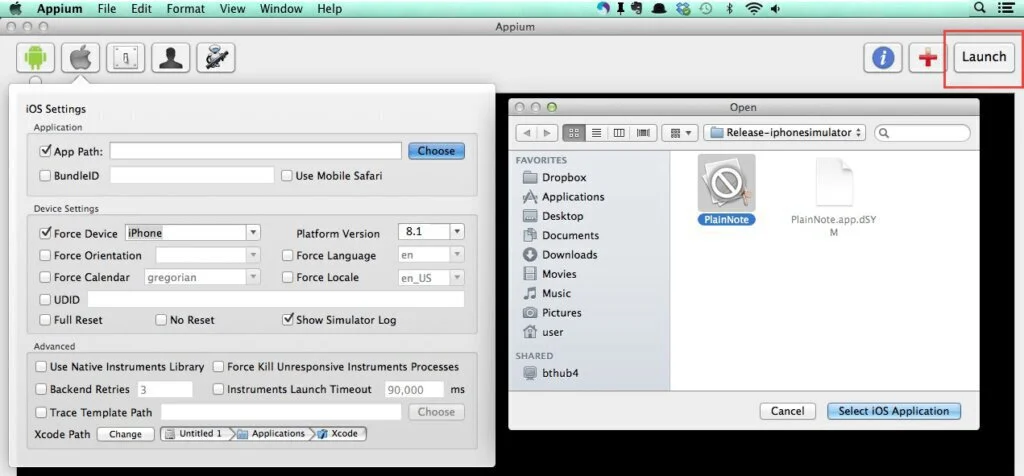
Appium is based on the principle that testing local applications shouldn’t require any SDK or recompiling your application. A user ought to have the option to utilize their favored test practices, structures, and devices. Appium is an open-source venture and has settled on plans and tools choices to empower a dynamic contributing network.
Features
- Open-Source multi-platform support
- Multiple test framework
Pros
- Supports hybrid, native and web apps
- Huge user community
Cons
- Slows down systems
Pricing
- On Quote
Visit: Appium
8. Katalon Studio
Katalon Studio is an automated testing platform by Katalon LLC. The product is based on the open-source automation structures Selenium, Appium with a specific IDE interface for web, API, smartphones, and desktop application testing. External libraries written in Java can be incorporated into a project to be utilized as local capacities.
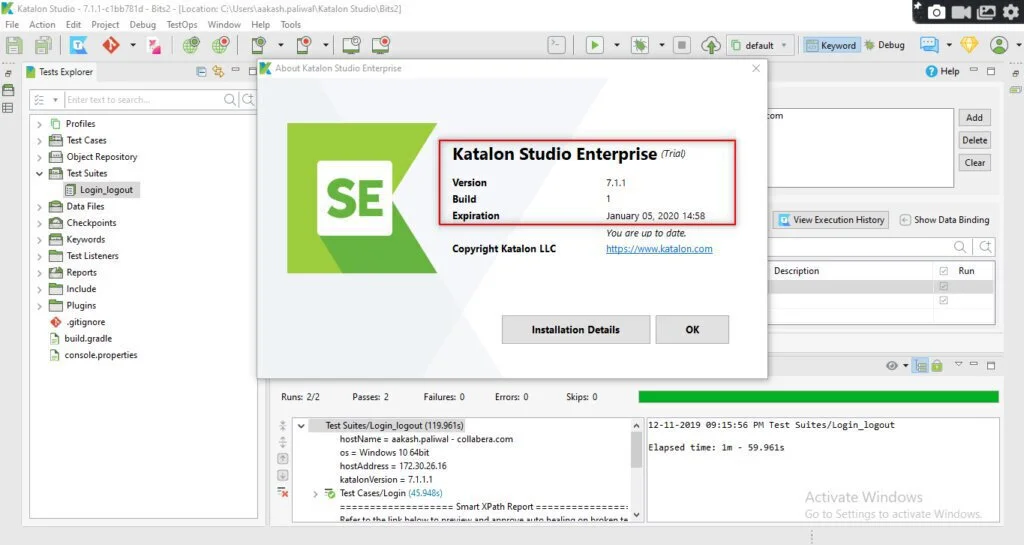
The automation system furnished inside Katalon Studio was created with methodology as the essential test writing strategy with information-driven usefulness for test execution. The UI is a complete integrated development environment (IDE) actualized on Eclipse rich customer platform (RCP).
Features
- Built-in Project templates
- Test scheduling
Pros
- Dual-editor interface
- Flexible test listener
Cons
- Reporting tools need improvement
Pricing
- Node-locked license: $759/license/year
- Floating license: $1529/license/year
Visit: Katalon Studio
9. Endtest
Endtest is one of a kind automated testing platform powered by machine learning. It is tailored to cater to all sorts of testing needs of an enterprise to small startups. It is a cloud service that enables users to create, manage, and execute tests for Web and Mobile Applications over the cloud.
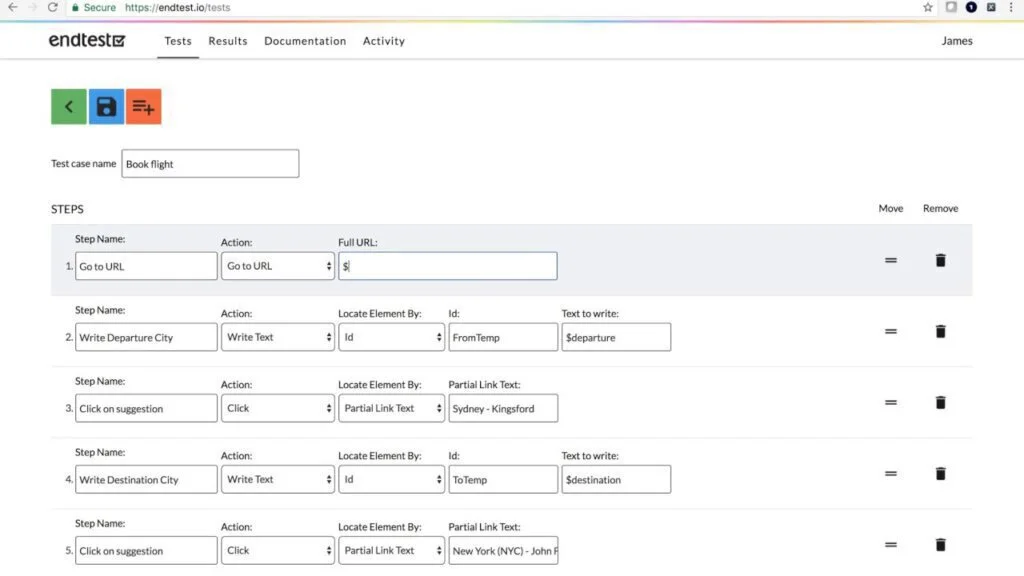
Endtest has a unique feature called web tests. This option provides the facility to create test cases on a web browser using extensions or manually by the web app. The test results are directly saved in the user’s Endtest account. A smooth drag-drop interface further eliminates any need to write complex codes.
Features
- Run tests in the cloud
- Scheduler
Pros
- Detailed results
- Mobile and Web test recorder
Cons
- Need additional features
Pricing
- Pro: $138/month
- Enterprise: On Quote
Visit: Endtest
10. LambdaTest
LambdaTest is a cloud-based cross-program testing solution targeted at both manual and automated browser adaptability testing. Users can direct live web applications or website intuitive testing over various working frameworks and web browsers. Moreover, it likewise allows users to run Appium and Selenium contents across mobile programs, on iOS and Android, while on an adaptable online Selenium Matrix.
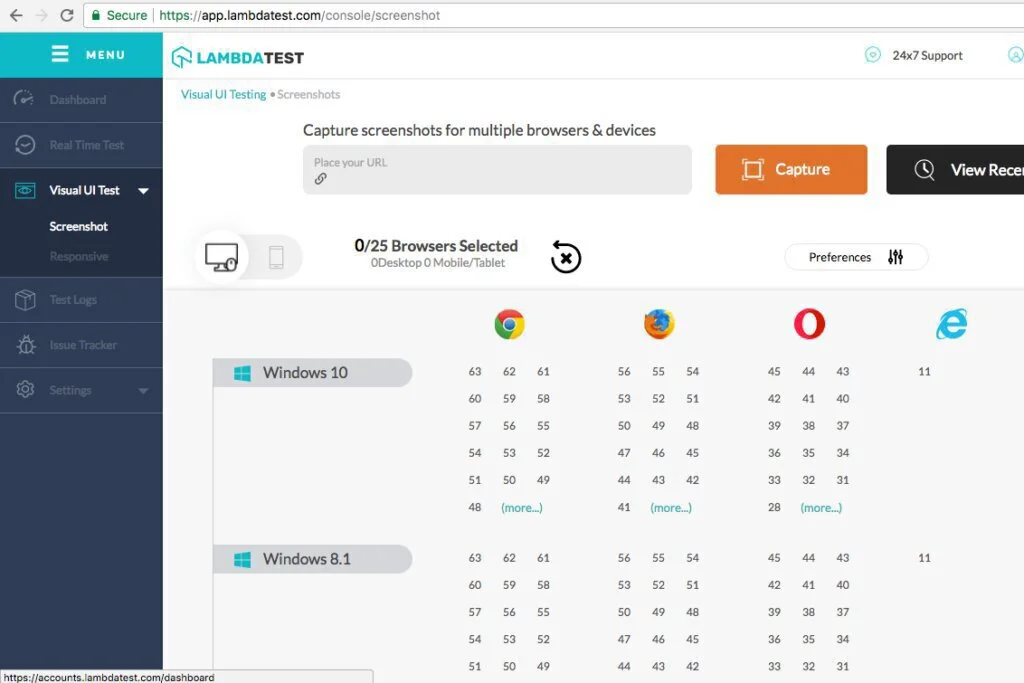
It also includes visual format testing that allows clients to look at various picture formats and spot contrasts differences between them. Moreover, LambdaTest offers bug logging functionalities in Jira, Asana, Trello, and Slack, with a completely free version, also available.
Features
- Live Testing
- Integrated Debugger
Pros
- Locally hosted web testing
- Cross-browser testing
Cons
- Requires strong internet connection
Pricing
- Live: $15/month/billed annually
- Web and Mobile Browser Automation: $99/month/billed annually
- Web Automation: $158/month/billed annually
Visit: LambadaTest
Final Words
The following points should be considered before selecting a testing software, Ease of use, Support for multiple testing frameworks, Minimize implementation and training cost, Extensive test reports, and the technology behind the application that is to be analyzed.
The choice of automation software, and testing procedure, are significant players for the automation process to be effective. Manual and automated strategies should be jointly implemented for fruitful testing because the objective of automation is to diminish the number of test cases to be run physically and not to dispense with Manual Testing completely.

